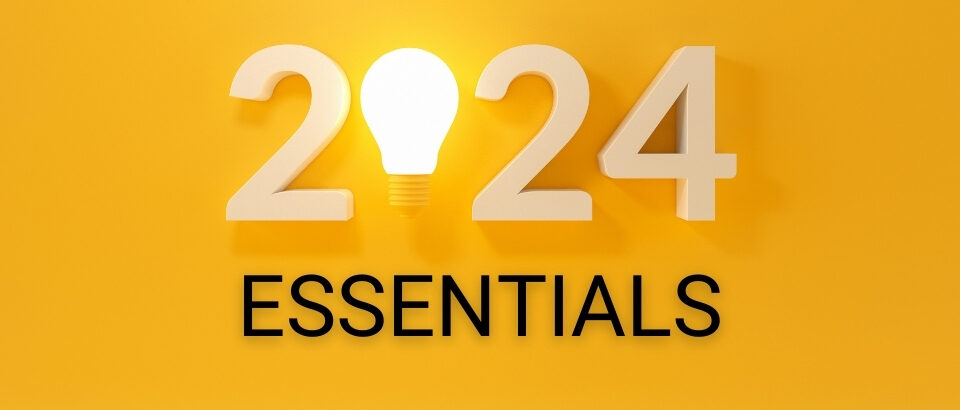


Online Marketing: I’ve built my website; what marketing should I start with?
January 1, 2022


Custom Landing Page Purpose and Cost
March 1, 2022Custom ecommerce website development costs can be challenging to determine because they can depend on what type of website you want (whether e-commerce or custom design). If you are looking for a custom ecommerce website, the website development cost will vary depending on how much work is needed and which features you need your site to have.
In this post, we’ll talk about factors that affect the cost of a custom ecommerce website and give you an ecommerce website development cost breakdown!
Factors that affect the cost of a custom ecommerce website
Several essential elements come into play when pricing a custom ecommerce website. They include:
Number of pages cost
Every website is unique in terms of the number of content pages it has. The more pages you need, the higher your cost for a custom ecommerce website as your web designer and developer spend time creating them.
The average cost for custom page design is $1000 per page. If you have similar structure pages (like a product page, this is considered 1 page).


eCommerce web design interactivity cost
The look and feel of a website is also crucial in pricing out an ecommerce site. Suppose you want interactive multimedia such as videos or presentations included in your website. In that case, this can increase costs because someone might need to create those components for you (or else that’s another fee).
Database integration cost
If you’re looking to run special promotions on specific items through your site or sell tickets online, databases are needed. Features such as shopping carts, coupons, shipping integrations all need to work correctly with all products. Not to mention, setting up all the appropriate tracking information.
A good developer will cost about $100 to $150 an hour creating these crucial elements.
Responsive design cost
Today in 2022, your website needs to be a mobile-friendly website. This should be included within your development quote as this is a standard and best practice when it comes to modern day eCommerce web development.
Responsive design can also slow down the speed of your site if not fully optimized, which will affect search engine rankings as well. Suppose something isn’t working or acting correctly on any device. In that case, that needs to be fixed before moving forward with the project.
The average cost of a responsive eCommerce website is from $10,000-$20,000.


Payment processing cost
Payment processing costs will vary from website to website depending on which software you decide to go with. Paypal is one of the easiest to integrate but others like stripe can offer better solutions for high-volume eCommerce stores.
However, on average, integrating payment processing costs are between $500 and $1500 per year, depending on the platform you use.
Ecommerce add-ons and extensions costs
Add-ons and extensions help in making ecommerce websites more powerful.
The cost varies depending on the web developer you use, but it can be as low as a free online plugin, a small $50-$100/year cost or increasing to a custom development solution from a developer that can take 20-100 hours. This cost may increase if multiple add-ons need to be integrated with your website.
Interactive multimedia cost
Interactive multimedia is essential, as it enhances user experience and can be used to increase your website’s conversion rate. The cost varies from $500 for a simple animation video or professional video production for $10,000+.


Content management system (CMS) cost
As mentioned above, the cost of your website will be affected by which CMS you choose.
For example, suppose you are using ecommerce software like Shopify or BigCommerce to create a fully functional online store. In that case, it will include some basic features for managing your content and providing all the other services that come with these platforms.
However, there may still be additional costs associated with creating custom integrations and adding extra functionality not provided by these systems. For this reason, expect CMS costs around $0 – $5,000, depending on how complex your site is. Free online builders generate income from charging a higher processing fee compared to an upfront cost of a custom eCommerce website designer.
Website copy cost
If your website requires a lot of content, then you will need to consider the cost of copywriting.
This is typically calculated on a per-page basis, with prices averaging around $100 – 500 per website page depending on your requirements and whether or not they are standard text pages, blog posts, etc.


Ecommerce search engine optimization (SEO) cost
If your website already has a high search ranking in Google and converts visitors into customers, you may not need to invest too heavily into SEO.
However, those that are just starting or have fallen behind the competition expect costs of around $750 – $4,000 per month for effective optimization on organic traffic and conversions.
Domain name cost
Depending on what you need your domain name to do, the price can vary.
Standard top-level domains (TLDs) like .com or .org aren’t expensive, starting at around $13 per year, but if you want a popular short domain, this can cost a little extra.
Also, some registrars allow customers to sell domains that they own. You may be able to get an existing one with good SEO rankings relatively cheap by utilizing these services – prices start from as low as $0.99 per year (.xyz is particularly cheap).
Hosting cost
The costs associated with hosting ecommerce websites depend greatly upon storage requirements, bandwidth needs, etc. However, the average price is around $50-$100 per month.
Additionally, if you are looking to have a lot of storage for images and videos, this may be another additional monthly expenditure on top of the hosting costs.
Remember that when it comes to ecommerce website development, there is always an element of customization involved. Don’t expect your particular needs to fit precisely with any standard packages offered by hosts. They will likely try to push more expensive options onto you to generate higher profits!
As mentioned previously, most web design companies offer their hosting services, which means that you won’t need to go out hunting for deals yourself, but can rely upon them instead. This should save some time/effort at least!


Website maintenance cost
Every website requires maintenance and ecommerce websites aren’t different. Ecommerce is a popular choice for many businesses these days, and the amount of competition in this market has increased dramatically over recent years. There’s more pressure on companies to ensure that their website stays up-to-date with new features, etc.
The website maintenance cost will be in the region of $100 per month typically.
The total cost of a custom ecommerce website
Now that we have gone through the different factors that can influence the cost of having an ecommerce website built for you, it’s essential to consider some other costs associated with running an online store too. This can include shipping and returns.
In total, the ecommerce site development cost can vary from around $500 to well over $100,000!
How to determine your ecommerce website costs: Questions to ask
There are several questions you should ask yourself before deciding on the cost of your ecommerce website.
1. Will I need support for hosting?
Hosting does not end with buying a domain name for your website. You will need to purchase hosting from a reliable company.
The hosting available is usually shared or dedicated. The difference is that if you have multiple sites on one server as part of a shared service, you could experience slowdowns due to high traffic or poor performance. This means more downtime and fewer visitors!
Dedicated servers are designed purely for your ecommerce site, allowing it full access to all processing power and storage space required, plus fast speeds without any interference from other websites at all.


2. What should my CMS do?
If you have a CMS feature that allows your staff to edit and update content, then there is a cost for hosting this feature.
You will need to purchase the CMS. This includes a fee for its use over time, or you can download it yourself with no ongoing fees. However, this option isn’t recommended since being able to set up an environment where updates are easily made is critical in ensuring that everything keeps running smoothly.
3. How much control do I want to give to my users?
Not all ecommerce websites want to allow their users to be able-bodied web designers. However, some do.
You will want to control the features on the website, keep it simple so users have the best experience. No need for an interactive customizer if they are buying a simple product.
4. What kind of web design do I need?
Web design is one of many factors that affect ecommerce website development prices; if you’re looking at building a small brochure site (more than just product information but no customizations), then expect it not only to be cheaper in terms of time invested by developers but also the final price tag when compared with more significant sites requiring more features.


5. How many product pages should I get?
As the number of product pages increases, so do your site’s complexity and ecommerce website development prices. This is because more content means that developers will have to spend longer on-page customizing it all. If you’re not offering too many products, then this might be a cost-saving option for you in terms of time invested by developers when compared with sites requiring more features.
6. How many text-only pages do I need?
Text-only pages are what people use when looking for information that’s not directly related to the products you sell. These include a contact page, FAQs, and any other informational pages. This kind of content is more about communication than shopping, many ecommerce web development companies offer text-only options at a lower price point. It is a smart strategy to implement a blog for SEO to start giving info to people to answer question and get traffic from Google when people search questions and answers… if you have an informational blog, this is a huge plus! Contact us for our SEO services to learn more!
7. How long should my text-only pages be?
While the number of text-only pages will vary depending on your site’s needs, most ecommerce companies offer a standard page length that is somewhere between 400 and 1200 words.


8. What kind of SEO work do I need?
If you don’t know what kind of SEO work you need, you can reach out to an expert SEO company (like us!) to learn how it works and to see the value it can bring. If your site is already getting lots of traffic and converting well, then you might already be on your way!
9. Should the site have database integration?
For ecommerce sites, the answer is almost always “yes.” Database integration, usually in the form of an API, can significantly increase your site’s usability. This will collect your customers, their orders, their inportant info like shipping/billing and credit cards.
10. Do I need website maintenance?
Most ecommerce companies offer ongoing maintenance at an additional cost so ask about these services before committing to anything long term just in case they’re included for free with other options before you sign the contract.
Conclusion
All of this information is great to have, but it can be overwhelming. If you need help deciding the best route for your business and want a more in-depth look at a custom ecommerce website design cost, give us a call or contact us online. Our experts will work with you one-on-one while considering all of these factors to ensure that we get things right from day one!





